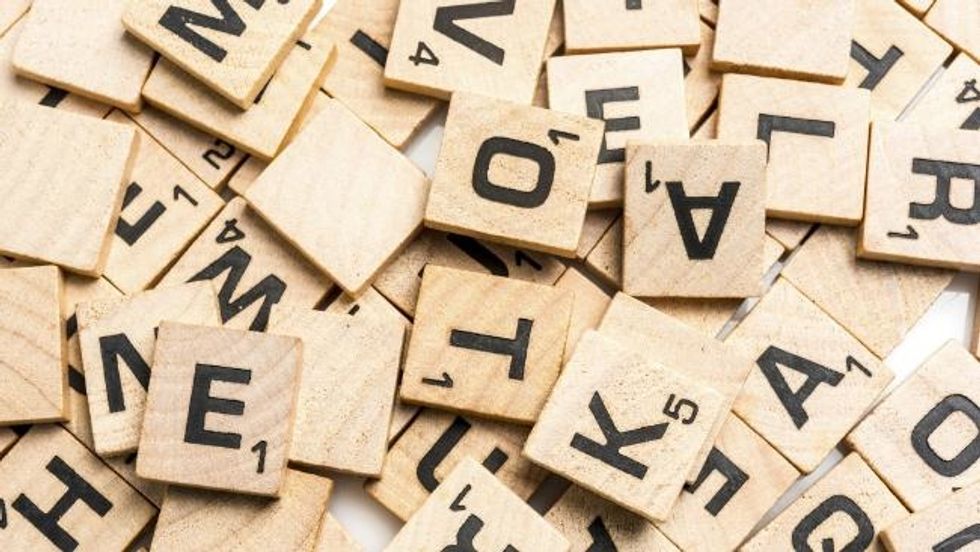Linguistics 212 has been one of my favorite, if not my absolute favorite Linguistics course I've taken at Emory. It reshaped my understanding of language and all the little rules we abide by when we formulate sentences, without even realizing that we are doing so. This was one of the first topics I had to address and explain: I hope you enjoy, and perhaps feel a little bit of the wonder I first felt at realizing our way of speaking so easily despite so many particular rules and word uses is a kind of magic.
From as young as the age of seven, just about any English speaker can name the differences between a noun, adjective and a verb – but what about categories of words such as possessive adjective? Is there anything special about these types of words, or should they simply be lumped together along with any old regular adjective?
The trouble with categorizing all words into verbs, nouns, and adjectives is that these categories are oversimplified and not all-inclusive. Ask any linguist and they will agree that to say a possessive adjective and an adjective are one in the same is highly inaccurate. Like many categories of words in the English language, possessive adjectives are more than the sum of their parts – in fact, they are not adjectives at all. One need only to think of a few examples to see this separation.
The first defining attribute of possessive adjectives is their limited number, and their limited use together. My, your, his, her, its, their, and our are all of the possessive adjectives in English. Below are a few of them used in sentences.
1)
a. This is my book.
b. He's putting on his jacket.
c. My cat twitches its tail.
In each of the example sentences above, the possessive adjectives are used as an indication of ownership. Though they each are different words, they indicate the same type of quality of the noun that it proceeds. There aren't any details about the book, jacket, or tail of the cat that indicate sensory, emotional, or any other descriptive information. Conversely, adjectives describe qualities of nouns, qualities that extend far beyond possession…
2)
- a.This is my favorite book.
- b.He's putting on his big, scratchy jacket.
- c.My cat twitches its tail excitedly.
These adjectives each add not only differing information, but differing sorts of information. Favorite is an adjective indicating a quality of the book found in an individual's subjective experience, whereas in b., the jacket is described as big and scratchy, two adjectives that arise from an objective sensory experience (sight and touch). With the final example, excitedly is unique because its root word 'excited' is also an adjective, but the suffix of -ly is a necessary addition, although it doesn't change the category of the word (more on this later). The diversity and multiplicity of adjectives clearly surpasses that of the seven possessive adjectives.
Another reason why possessive adjectives aren't adjectives arises when one might try to use more than one possessive adjective in a row, as can be done with adjectives.
3)
a. * This is our my book.
b. * He's putting on his her jacket.
Something clearly seems wrong in these sentences. The sentence "He's putting on his jacket" was in no way hindered by adding big, scratchy from example 1) to example 2). Yet, adding another possessive adjective from 1) to 3) disrupts the meaning of the sentence. Thus, unlike with adjectives, only one possessive adjective can be used in a constituent.
Let's return to the sentence "My cat twitches its tail excitedly". The permissible addition of the suffix –ly is an indication of another significant quality of adjectives – their ability to combine with affixes. Below is what happens if affixes are added to possessive adjectives…
4)
a. * This is myer book.
b. * He's putting on hisly jacket.
c. * My cat twitches itsness tail.
Clearly, possessive adjectives cannot have meaning morphologically added. Its, my, their, etc. are at max capacity in their meaning, whereas adjectives can be given additional affixes and still function grammatically – though, there are of course rules for which affixes can attach when, and to what words:
5)
a. This is the greatest book. *This is my favoritest book.
As multifarious as they are, adjectives do abide by a complex set of rules, which includes a restriction on ungrammatical words such as favoritest, even if they still seem to make sense.
A last important distinction between adjectives and possessive adjectives is possessive adjectives' inability to pair with determiners (words like the, a, this, etc.) in a constituent, whereas adjectives can pair with determiners in a constituent without a problem.
6)
The apple My juicy apple *The my apple * My the juicy apple
An idea Our amazing idea *An our idea *Our an amazing idea
So, why are possessive adjectives not adjectives? Why can't we just call every word either a noun, verb or adjective? The list of reasons go on: from how more than one possessive adjectives cannot be used in a row (unlike with adjectives), to how they cannot pair with affixes (unlike adjectives), and finally to possessive adjectives' evident inability to pair with determiners (unlike adjectives). Possessive adjectives and adjectives do in fact differ greatly – as well as many other categories of words that exist in the English language – and they all ought to be recognized as such.
















